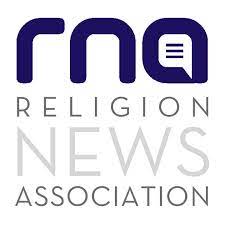I had the honor of presenting on a marvelous panel yesterday at the RNA 2022 Conference in Bethesda Md. Below is the text of my talk.
Religious Reporting in an Age of Secularization
The biggest religion story of the past twenty years is the decline of religion in a sociological sense. In December, 2021, PEW Research Center reported that around 30% of US adults were not religiously affiliated and that the percentage of self-identified Christians had fallen to 63% of the population from 75% just ten years ago. There is much speculation over whether this trend will continue, level off or reverse.
It is a big story.
But there are four other important stories that are related to this sociological one, but do not get much coverage and are not well understood.
The first story is that the decline of religion had an unexpected constitutional effect. As their numbers declined, some religious voters responded with a determined effort to entrench a strong pro-religion majority on the U.S. Supreme Court as a kind rear-guard protection. As is well-known, this effort was successful.
But it is not yet appreciated just how pro-religion this Supreme Court majority is. For the foreseeable future it is unlikely that a religious party will lose in the Supreme Court. I don’t mean that this majority will ignore the law. Rather, they see the law through the lens of religion, much as the Warren Court saw the law through the lens of civil rights.
Nor is it appreciated that this pro-religion majority is willing to sacrifice even originalism in pursuit of its pro-religion position. This majority increasingly requires government to materially support religion by forcing government to include religious institutions in all its programs. Just ask Noah Feldman at Harvard Law School what the framers would have thought about that. And then you should ask the Federalist Society, people like Randy Barnett at Georgetown, whatever happened to originalism?
The second related story is that the decline of religion is not just sociological but is also a theological event, even within the churches. In my new book, I tell the story of Pope Francis delivering the Urbi et Orbi Address on March 27, 2020, asking God to be with us in the pandemic. The Pope referenced the account of the disciples fearing death from the storm in the Gospel of Mark. But the Pope omitted the verse, Mark 4:41, “Who is this that even the wind and the sea obey him?”
To have included that verse would have invited a prayer for God to spare us from the virus. That kind of prayer would have been second nature 200 years ago. But we have become naturalists. We know viruses are natural events, even if created in a lab, and God has nothing to do with their spread. For the same reason that the Pope omitted this verse, there were no prayers by America national figures during the pandemic for God to take the virus away.
The Death of God means that, even for those who say they believe in Him, God no longer acts in the affairs of the world. That is a big change.
The third related story is that the Death of God is also a philosophical event. It changes our ontology. Friedrich Nietzsche who announced the Death of God, knew that the traditional values of truth, goodness, beauty and justice would be overturned.
The Death of God is the reason we are in a post-truth age. It is why we have such skepticism about vaccines and climate change and everything else.
The Death of God is why we have no faith in the future. And why we hate our political opponents rather than trying to convert them. We no longer agree with Dr. Martin Luther King, Jr., that the arc of the moral universe though long bends toward justice.
The Death of God is why American public life has broken down.
Finally, the parallel growth of secularism is not being covered in its full meaning. Secularization has been told as a story of increasing hostility toward religion—former Attorney General William Barr called it the War on Religion.
Well there is plenty of that. Obviously, the New Atheists were largely motivated by hostility toward religion.
But what is not being noticed is that secularism, like religion, can be divided into two basic groups. Just as there is a liberal/conservative division in religion, there is also a materialist/non-materialist division in American secularism.
Most of the nones say they believe in God, or some similar force. Many secularists claim to be “spiritual but not religious.” This is not how Chris Hitchens sounded.
Religious leaders view these non-materialist claims by secularists as merely a halfway house to full-fledged atheism. In the Jewish context, for example, Orthodox leaders say such people or their children will just assimilate.
But another way to look at this phenomenon is that some secularists reject mechanistic materialism as an accurate description of reality.
I identify the group I am talking about as “yes secularists” because they answer yes to a question asked by the Canadian theologian Bernard Lonergan in 1972, is the universe on our side? The yes secularist answers, yes.
Conversely, the people at the Freedom from Religion Foundation, and in other, similar groups, probably answer Lonergan’s question no, the universe is not on our side; the universe is just forces and matter.
This is a split in secularism worth reporting.
Granted, it is hard to find the yes secularists, who are not yet organized as a secular alternative. Efforts to define them in surveys, as in the recent book, Secular Surge by David Campbell, Geoffrey Layman, and John Green have really not been successful. Probably, the closest the yes secularists come to doing anything together is listening to Krista Tippett’s radio program, On Being, on Sunday mornings on NPR.
But if you could interview them, you might find that they are much less hostile to religion than are the materialistic secularists. That is because, like most religious people, yes secularists believe there is more to the universe than meets the eye. This is not for them a form of supernaturalism. It can be understood as a richer form of naturalism, as in the process philosophy of Alfred North Whitehead.
I have high hopes for the yes secularists. I hope that they will offer a healthy replacement for the wonder-working God of the Bible and that their connection to the universe will heal the current divisions in American public life. I also hope they will forge an alliance with religious believers since they, or we since I am a member of this group, have no reason to be hostile to religion.
Most important, I hope this group will renew America’s faith in the objectivity of values that suffered in the Death of God. The universe vindicates truth, goodness, beauty and justice. You don’t have to be a member of any religion to believe that.
The emergence of yes secularism is a story I hope you all in this room and online get a chance to tell.






0 Comments